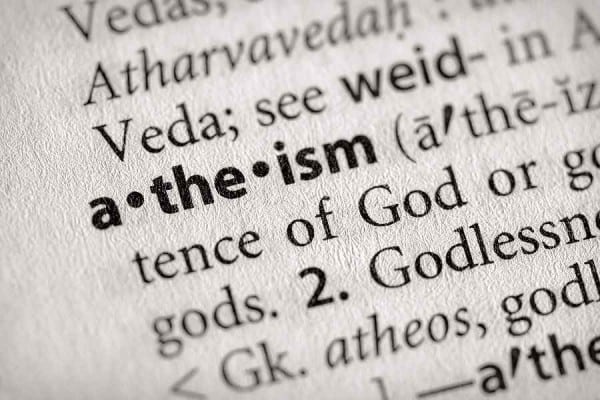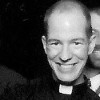Editor’s note: prior installments of the “How to Be an Atheist” letters – part 1, part 2 & part 3.
***
Dear Tim,
Your last letter was as insightful as I’ve come to expect. I’m grateful to be corresponding with you. And it seems to me that you were right in saying that it is not entirely fair of me to ask you to show (1) the illegitimacy of asking why there is anything at all, and/or (2) how such a question might be answered without some type of appeal to a Creator who stands off the map of creation, without delving a bit deeper into some background thinking. Let’s do that, although it does meant that you’re forcing me to delay the process of completing my application to law school for at least another week.
In your letter, you asked some quite cogent questions about St. Thomas Aquinas. I was particularly struck when you asked not just about his (in)famous Five Ways of proving God, but about the rather humble way he, a theist to the core, went about asserting in those Five Ways that Deus est. Your question made me think. In fact, it prodded me to return to the Five Ways themselves, especially to the third way, in which Thomas attempted a quia demonstration (in which we think backwards, remember?) to show that our ability to question the world necessitates that there be cause for it. What if we dove into this third way a bit more deeply in this letter? Trusting in your assent, I’ve included the text of that third way here, putting the passages I think most important in bold:
The third way is taken from possibility and necessity, and runs thus. We find in nature things that are possible to be and not to be, since they are found to be generated, and to corrupt, and consequently, they are possible to be and not to be. But it is impossible for these always to exist, for that which is possible not to be at some time is not. Therefore, if everything is possible not to be, then at one time there could have been nothing in existence. Now if this were true, even now there would be nothing in existence, because that which does not exist only begins to exist by something already existing. Therefore, if at one time nothing was in existence, it would have been impossible for anything to have begun to exist; and thus even now nothing would be in existence – which is absurd. Therefore, not all beings are merely possible, but there must exist something the existence of which is necessary. But every necessary thing either has its necessity caused by another, or not. Now it is impossible to go on to infinity in necessary things which have their necessity caused by another, as has been already proved in regard to efficient causes. Therefore we cannot but postulate the existence of some being having of itself its own necessity, and not receiving it from another, but rather causing in others their necessity. This all men speak of as God.
It seems that you were right to point out Thomas’ “humility,” after all look at where he starts – with the phenomenal, experienced world. Thomas experienced a world where things come into being, exist for a bit, then are no more. Florence was a sheep. Three years ago, she had not yet been born. Three months ago, one might have remarked after her loveliness. Last week, my cousin Joe went out and that night we had mutton. Florence was not the everlasting sheep. Indeed, try as I might, on the map of creation I cannot find anything that by its nature has to exist. Mountains rise and fall, galaxies come into being, organisms are born and die. Yet, try as we might, on the map of creation it seems that there is no ens, no thing, one can pick out from amongst other things, whose essence (what it is) is to exist.
Scour the map as you might, Thomas thinks, you’ll not find an ens that, by its definition, must exist. If there are angels, as Aquinas believed there were, even they, un-killable as they are, only exist because God is making them to be. But then the key: on a map where things come to be and pass away, Thomas seems to think that it is defensible to hold that there must be some entity who has to be, whose essence is existence, from which all that is derives its existence. Whatever this necessarily existing, other creating thing is, “This all men speak of as God,” says our Thomas.
As I reread this particular passage, it was that last line that grabbed me. Note its passivity, “This all men speak of as God.” What is “this”? Well, it is that which cannot not exist, that which gives existence to the created order. Don’t think of it like a puppeteer holding a seemingly infinite number of threads. Think, instead, of the way a waiter hold and sustains a tray: the waiter is not on the tray, but is reason that the tray stays aloft as it makes its way through the kitchen to its destination.
In short, Aquinas looks at the world, makes an observation, and follows the “Why” question with childlike tenacity until he realizes that whatever it is that accounts for the existence of beings is not itself one of those beings, is itself necessary, and merits the rather vague name “God.”
Perhaps it will be best if we don’t walk through each of the Five Ways, although each does bears something of a similar structure, so you will be well prepared if you would like to investigate them, Tim. Suffice it to say that, in each, Aquinas starts out with the realm of ens and, finding that the word “God” is not easily or appropriately applied to any single ens, punches a hole in the map of creation and asserts that whatever God is, God is not on the map of creation and is, in fact, the reason there is a map at all. Whatever it is that is off the map and accounts for there being a map at all, he concludes, “This all men speak of as God.”
I know I mentioned above that I would leave the investigation of the Five Ways to you, and so I shall, but after some reflection I would like to encourage you to re-read them and to think about them in light of what we’ve written back and forth about. Perhaps you’ll be struck by what he is trying to do. Near as I can tell, he is simply advocating that it is sensible to ask, as Fr. Brian Davies says it, “How come anything in the universe at any time?” Whatever it is that responds to this question, that is what we call God. I leave you to it!
Looking forward to your next letter,
Mr. Ryan Duns, SJ
AKA: Florence Feaster
***
Editor’s Note: read the final letter by clicking here.




